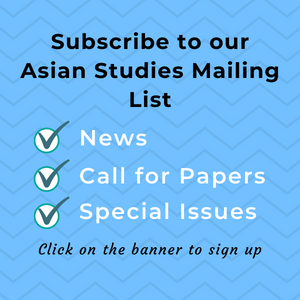System Upgrade on Tue, May 28th, 2024 at 2am (EDT)
Existing users will be able to log into the site and access content. However, E-commerce and registration of new users may not be available for up to 12 hours.For online purchase, please visit us again. Contact us at customercare@wspc.com for any enquiries.
How did the Great Proletarian Cultural Revolution affect everyone's lives? Why did people re/negotiate their identities to adopt revolutionary roles and duties? How did people, who lived with different self-understandings and social relations, inevitably acquire and practice revolutionary identities, each in their own light?
This book plunges into the contexts of these concerns to seek different relations that reveal the Revolution's different meanings. Furthermore, this book shows that scholars of the Cultural Revolution encountered emotional and intellectual challenges as they cared about the real people who owned an identity resource that could trigger an imagined thread of solidarity in their minds.
The authors believe that the Revolution's magnitude and pervasive scope always resulted in individualized engagements that have significant and differing consequences for those struggling in their micro-context. It has impacted a future with unpredictable collective implications in terms of ethnicity, gender, memory, scholarship, or career. The Cultural Revolution is, therefore, an evolving relation beneath the rise of China that will neither fade away nor sanction integrative paths.
Sample Chapter(s)
Foreword
Preface
Chapter 1: From Iron Girls to Greedy Girls: Gender Marking Stability and Chaos Before and After the Cultural Revolution
Contents:
- Foreword
- Preface
- About the Editors
- Introduction: Who Is Writing the Cultural Revolution? (Chih-yu Shih, Mariko Tanigaki, and Tina S Clemente)
- From Iron Girls to Greedy Girls: Gender Marking Stability and Chaos Before and Aafter the Cultural Revolution (Louise Edwards)
- China's Minorities in the Post-Cultural Revolution Scholarship: A Case Study of Inner Mongolia (Sharad K Soni)
- Russian Sinology During the USSR–PRC Rivalry, Late Soviet, and Post-Soviet Periods: Trajectories of Evolution (Valentin Golovachev, Ivan Zuenko, and Nikolai Rudenko)
- A Cross-Reflection on Development: Recollecting China, Contemplating the Philippines (Tina S Clemente)
- Hong Kong as a Base for China Watching and the Growth of Byron S J Weng's Scholarship (Mariko Tanigaki)
- British Media Coverage of the Early Cultural Revolution, 1966–1969 (Aglaia De Angeli)
- Cultural Revolution and the Making of Xi Jinping (Swaran Singh)
- Index
Readership: Academics, policymakers, professionals, undergraduate and graduate students interested in China studies, China's Cultural Revolution, ethnicity studies, Chinese history, Hong Kong studies, intellectual history, journalism.




